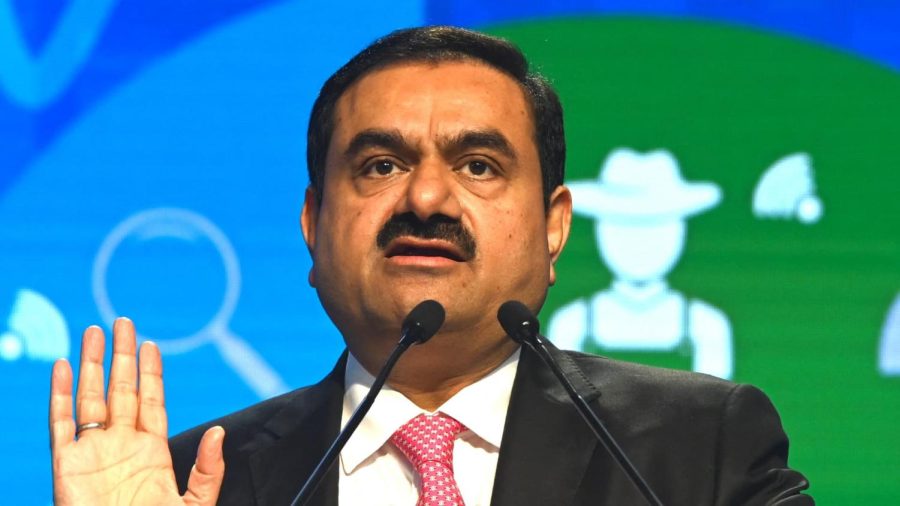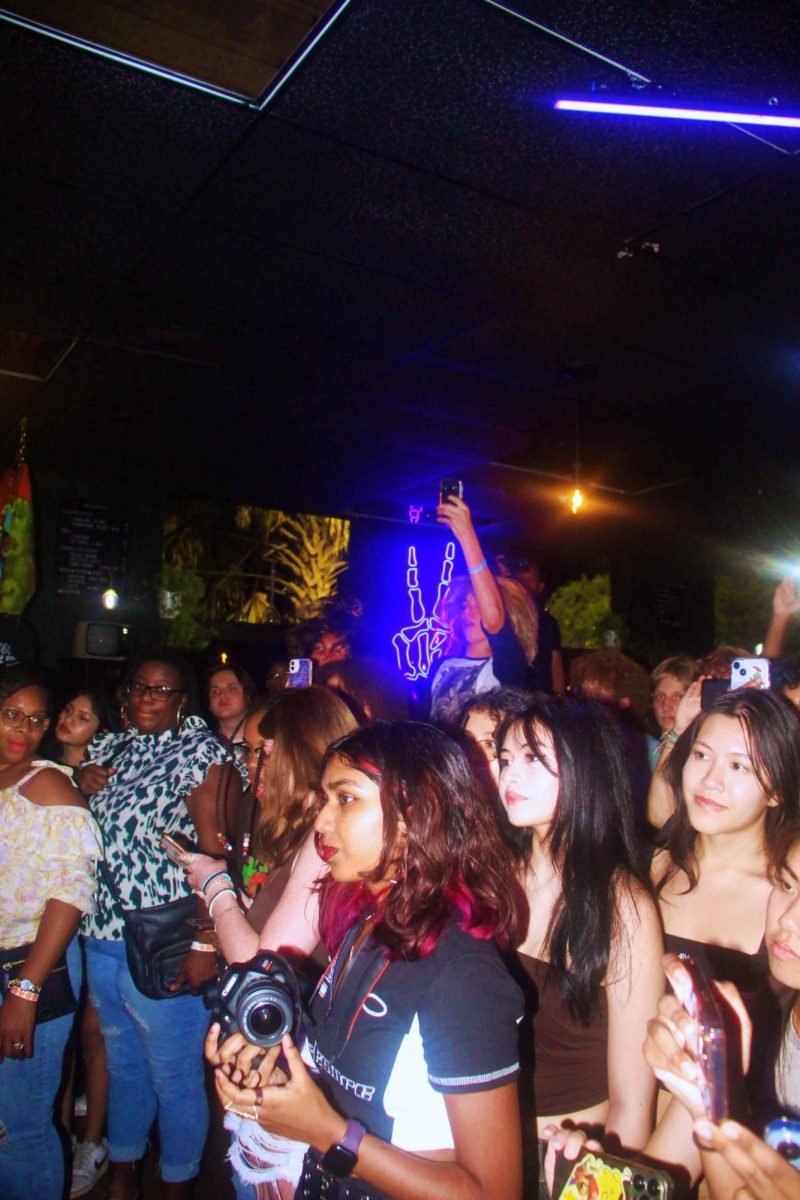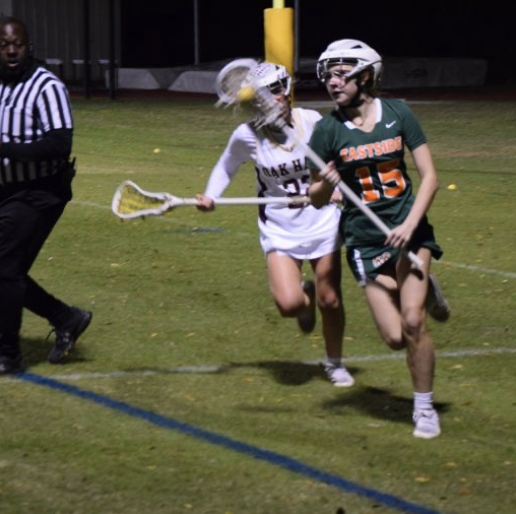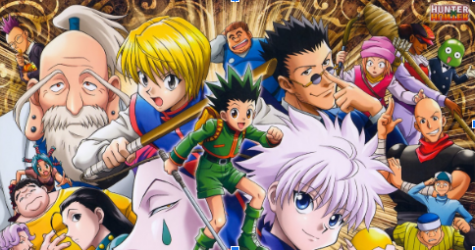Independent Kashmir: The Incomplete Aspiration
In this extensive opinion piece, senior Adnan Khan sheds light on the numerous issues that plague Kashmir, a small region in Northern India from which he and his family originate.

A Kashmiri boy shouts slogans during a protest outside of Srinagar, Jammu and Kashmir state in India on Monday. At least 14 protesters died. Illustration: Associated Press https://www.wsj.com/articles/SB10001424052748703466704575489451188515956
This article contains three primary sections: a contextualization of Kashmir’s political issues, an interview with my father (who grew up in Kashmir), and my thoughts and experiences surrounding the issue. I hope this article helps bring to light an issue that has affected the lives of millions over the last couple decades.
A realm controlled by foreign tyrants, a people persecuted for their culture, a land decimated by war. Many displaced groups come to mind with these descriptors – Kurds, Uyghurs, Palestinians, Zulu, etc. The large majority of people, especially in first-world countries such as the United States, will never understand the true desperation these oppressed people face; this is in part due to the fact that they have not lived through their cruel reality, but also due to the lack of primary voices from these war torn regions. Fortunately for you, I was born in the dishonored, violence-ridden lands of Kashmir. My fellow 5.6 million nationless, stateless people, have had interesting origins. Descending from one of the “Ten Lost Tribes” of Israel, exiled under intolerable Assyrian rule circa 722 B.C.E., and the ancient Indus and Persian peoples, Kashmiris established themselves as elite warriors for centuries fighting against the likes of Alexander the Great before banding together under the banner of Islam. The diversity of the religions and cultures present in the Northern portion of the Indian subcontinent naturally generated conflict between the Hindus and Muslims. Following the year 1947, Great Britain removed their presence entirely from the subcontinent, and Kashmir was split amongst three nations of China, Pakistan, and India, with most of the region going to the latter. Jammu and Kashmir, the area designated under India’s jurisdiction, held onto its sovereignty via Article 370. Under Part XXI of the Indian Constitution, Article 370 clearly establishes Kashmir’s temporary status as an Indian state. In addition, the Indian law only applied to a certain extent in the region with Kashmir having its own separate legislative council, hinting at a future which is yet to arrive.
Independence and Aftermath
The creation of India and Pakistan brought about a decade of relative peace in Kashmir, despite the eternal menace of poverty. Unfortunately, after the nations finished stabilizing their social, political, and economic aspects, the area of Kashmir started its transformation into a buffer zone. Starting in the 1960s, the Indian government deployed its military to establish a nationalist presence in the region. This display of strong federalist force proved to be successful in instilling patriotism, prominently amongst the nation’s Hindu populace. However, the people of Kashmir were forced to carry the subsequent burden of dealing with the military presence, in many cases being forced to feed and house the soldiers against their will. Despite the attempts of many determined political figures, the prospect of immediate Kashmiri sovereignty became a futile cause, as Article 370 was essentially terminated in 1964; this effectively merged their Congress with the Indian National Congress and demoted the once-autonomous territory to what is best described as a slave state. This strategic politicking served India very well, as it gave the Kashmiri people no legal basis upon which to protest the military presence. Following the Indo-Pakistani War in 1965, India’s malice towards the Islamic religion grew rapidly following the destruction caused by/blamed on the Muslim nation of Pakistan. This malice was channeled through the Indian military presence onto the Kashmir Muslims, who had already directly endured the war’s carnage, resulting in the creation of the Kashmiri National Liberation Front. Throughout the 1970s, the Kashmiri people started to rightfully protest their unsung plight, while the NLF took what they thought to be more practical measures by arming themselves with the sole purpose of freeing their people. Protests against their government’s lack of protection and mistreatment were met by further acts of injustice and violent repression. The NLF, the only true form of protection the Kashmiri has ever had, came crashing down with the arrest of Maqbool Bhat and the self-exile of Amanullah Khan (no relation to yours truly), the Front’s two most influential leaders. Khan went on to reform the NLF into the Jammu and Kashmir Liberation Front (JKLF).
When Push Comes to Shove

The 1980s brought about the advent of more radical, anti-Indian sentiments transforming former groups of freedom fighters into extreme Islamist terrorist groups under the guidance of the Pakistani government. This decade served as a major tipping point for the everlasting Kashmir conflict, with these radical terrorist groups gracefully painting a sanguine tapestry depicting the stateless people as chaos-hungry monsters. The Indian government promoted this image, not unlike a prized piece of art, touring the fear generated by tales about such radicals across thenation and, with the aid of a curated media image, justified the horrors which soon would follow. The immediate actions taken were executing the already wrongly imprisoned Maqbool Bhat (pictured right), and enacting off the record operations to find and capture Amanullah Khan.
Even political figures less inclined towards violent revolution or even advocates of diplomatic approaches to justice were hunted down in an attempt to discourage and eventually terminate all forms of dissent. However, this only further radicalized Kashmiri society and, by the end of the decade, most of Kashmir supported secession. Tensions were now at an all-time high, which is saying a lot about a place essentially bred on chaos. Anybody possessing a shred of humanity could see that compromise was necessary, and deviating from reconciliation would lead to devastating results.
The military’s response? Strengthening their imperial grip and amping up the violence. Desperate to capture and make an example out of the radicalized JKLF, India’s Northern Command’s generals gave their foot soldiers the green light to use hostile force during their marches and searches through Kashmir, when determined “necessary” by their corporals. With the support of tank battalions and air force squadrons, the Northern Command scorched through major cities, burning down suspected safehouses and assaulting, often to the point of fatality, citizens either suspected of harboring or being JKLF members. More often than not, these suspicions were incorrect inferences and resulted in more collateral damage to an already struggling people. The destruction of mosques and other major cultural sites, such as the Shrine of Norruddin Rishi and Pari Mahal, as well as the execution of influential Imams and civil rights servants continued for over three decades, destroying the Kashmiri identity and further proving that India was not interested in aligning its military action with basic human decency.
The Kashmiri Response
Abuse from the Indian government caused further divides within Kashmiri society. Instead of a large shift towards radical revolution like in the 1970s and 1980s, most people opted to become more submissive, obeying the Indian government’s requests and yes-manning the nation’s questionable decisions out of fear. The JKLF, in their dwindling numbers, further radicalized and turned on the loyalist Kashmiris, who they had now labeled as enemies of the cause. On top of the military’s wrath, Kashmir was now subject to the blind rage of some of its own. Mosques and cultural communities that were deemed worthy of mercy from the Northern Command were targeted by the JKLF forces and those that were sympathetic to Kashmir sovereignty continued to be persecuted. Meanwhile, Pakistan continued to be involved in the background by providing resources and weapons to the JKLF while also directly propping up other radical groups such as the Lashkar-e-taiba and Jaish-e-Mohammed, all to harm India. Pakistan’s involvement became so prominent that it even engaged in another armed conflict in 1999 in the Kargil War. However this conflict essentially solidified India’s hold of Kashmir, as the Northern Command gained a decisive victory. To further tighten their grip on the Kashmiri people, forced conscription and reformed pro-India education was implemented in the hopes of neutering the movement towards Kashmiri sovereignty by brainwashing future generations. However, this turned out to be India’s biggest failure as for the first time in over three centuries, Kashmir united to protect their youth and successfully repelled India’s propagandized curriculum.
The Current Outlook Of A Civilized And Educated Man
The following is a transcript of an interview with my father, conducted by yours truly. This serves to help you understand how tangible and real the Kashmiri struggle is.
Interview
Q1: Is India’s current jurisdiction over Kashmir justified?
A: No it is not, the suspension of Article 370 and India’s occupation was enacted against the will of the Kashmiri people.
Q2: Should Kashmir strive for independence and establish itself as its own nation?
A: They should because the Kashmiri people were never part of India.
Q3: Is Kashmiri independence currently possible? Why or why not?
A: Currently, Kashmiri independence is not remotely possible due to India’s military presence. Actually, four major rivers originate from Kashmir [Jhelum, Chenab, Indus and Zanskar]. These rivers flow into India and Pakistan and provide both nations with resources. If Kashmir was to move to independence, either nation, most likely India first, wouldn’t allow it and have prevented any major movements in the past for this reason. An independent Kashmir would mean a powerful Kashmir, taxing India and Pakistan for access to valuable water and waterways. Also, large lithium, nickel, and cobalt stops have been found in Kashmir recently, unveiling a potential successful economy for a hypothetical independent Kashmir. This basically sets in concrete that India will never leave Kashmir not until Modi finishes his extortion and torture of the Kashmiri people.
Q4: What do you think of the current PM (prime minister) [of India], Narendra Modi?
A: Modi is very fundamental – very conservative. So for many Indians, he is great. He is a good leader for the Hindus and if you look at what he has done for the Hindus, he is a great person. But, for the minorities, he is not good. He sanctions their persecution and India is becoming a Hindu state under him. Based on his work against minority communities, it can be safely said that it is easier for a camel to go through the eye of a needle than for Modi to be fulfilled in the afterlife.
Q5: What would you say to Kashmiris who want to join Pakistan?
A: Don’t go there. Don’t join. As bad as India is, joining Pakistan would mean more economic and social instability. Pakistan’s own economic and social status is not in very good condition right now and will not be in the foreseeable future…The best case scenario is independent Kashmir maintaining good relationships with both India and Pakistan.
Q6: What would you say to people who support India’s occupation of Kashmir?
A: People who support the occupation? I can say – I can assume that they are probably common folk who are inclined to support India due to religion creating a bias in favor of the BJP. I would advise them to educate themselves on the history of both Kashmir and India and recognize that they were never and were never meant to be one. If all of the common people of India and Kashmir educated themselves, it would be for the greater good and would give us the power to expel the corruption and injustice at the top of the Indian government.
Most Kashmiris differentiate between common Hindus and the radical forces in the government. It is important to hold this distinction so the cycle of persecution we have suffered from can come to an end whether it be through peace or force. Kashmiris are also aware of how unviable the dream of independence is in the near future; however, it is imperative that we do not smother the sparks of hope as it is our duty to fan the spirit of liberty and justice everywhere and always.
Kashmir’s Conundrum
The new millennium introduced the internet to India, which reached even the most poverty-stricken regions. This would have given Kashmir an opportunity to raise awareness and spread information on half a century of unjust rule. However, India opted to take a page out of the old authoritarian playbook and lock down the Kashmiri general public’s access to the web.
Within the last decade, tensions in Kashmir have eased up, but have recently reignited after the ascension of Prime Minister Narendra Modi in 2014. His connections to the radical Hindu nationalist paramilitary volunteer organization, the Rashtriya Swayamsevak Sangh (RSS), has obviously influenced his party, Bharatiya Janata Party (BJP), as well as his policies as Prime Minister. Since the beginning of his term, Modi has encouraged and increased the military presence in Kashmir, with “safety personnel” numbers reaching as high as 600,000. In addition, the army corps fed off the Kashmiri lands and resources, pilfering the people’s hospitality. Furthermore, Modi’s administration deliberately limited the amount of relief packages delivered to the north following the 2014 India-Pakistan Floods. While the death toll was limited to only 300 individuals, the underwhelming federal support resulted in Kashmir limping towards inefficient redevelopment with the next two years bringing about 1.1 million casualties. All the while, the United Nations watched comfortably from the Secretariat Building while their Military Observer Groups continued to ignore the destruction and bloodshed. Reading through this article and slowly absorbing the maniacal reality of Kashmir, you might have forgotten that an organization dedicated to international peacekeeping even exists. For decades, the United Nations has failed to enforce its beliefs on multiple fronts and on multiple occasions. The United Nations, created to replace and avenge the failures of the League of Nations, has wilted into an echo of its past self, which hopes to replace its own credibility with all of the world’s fear of a return to a chaos-driven past – a past that Kashmir has not ceased to sustain.
Final Ruminations
As a first-hand witness of many of these acts of ethnocide and genocide while living in and visiting Kashmir, I was unintentionally programmed to be afraid of my own heritage. In my mind, any sign of being a Kashmiri would only be met with hostility either towards me or my family. The sons and daughters of Kashmir across the globe are raised to be ignorant of their cultural heritage and the significance of the detrimental cycle promoted in their motherland, eventually fearing their own blood. The identification of my heritage has been and will always be a loyalty test devoid of the comfort of true national allegiance. Over the course of my life, I was specifically told to identify myself as Indian-American in front of Hindus and American in front of Westerners, distancing myself from Kashmir in the hopes of avoiding a negative perception or association with violence. All the while, images of my own family being marched down the boulevard like lambs to the slaughter flashed through my mind. No matter the efficiency of the BJP’s propaganda machines, no matter the indoctrination of millions everyday under the radical Hindu leadership, no matter the romanticization of Modi’s saint-like facade across the world, I will never forget their lifeless bodies cratered from bullet impacts, their split skulls, and their mangled organs painted over streets in all the wrong places. From the once-glorious peaks of Azad to the Jammu valley, which has been smothered in the shadow of its former glory, scarred children cower in fear after the 6 PM curfew, fearing any further damage from man-made horrors only made worse by the nighttime searches which followed. My entire lineage and people have witnessed the once-beautiful Kashmir ravaged by nothing more than barbarians. The injustice we have faced is blood-boiling, and generations of cultural rape will continue lest the Demon BJP is purged from Kashmir and the Northern Command’s blade is broken or turned against them. The fact that I have to argue for the Kashmiri people’s sovereignty of their own land and their own resources is down-right nonsensical and simply outrageous; at the very least, we should have our state-ship reinstated. That is the desperation to which we have been driven. We have been driven to a point where we are hoping for the bare minimum recognition and decent, humane treatment from soulless oppressors. In reality, we deserve our own nation free from militant control. In reality, it is vengeance, not equality, that is due. The fact is, India’s continued disinterest in repenting for their great sins by simply leaving has angered the entirety of Kashmir. The tighter their grip is, the more it will slip through their fingers. The whole world, especially António Guterres and his idiocracy, should take action and punish Modi or brace themselves for the next great decimation of peace. Modi himself should consider retracting his military and grovel for repentance prior to Kashmir’s reciprocation of the Northern Command’s hospitality; or maybe he would be inclined to witness a Sherman-esque march through Gujarat or Delhi, or the destruction of his grandchildren’s lives, or the execution of his holy cow of a mother in front of his own eyes. The United Nations might be content with maintaining a facade of peace at the low, low cost of dispensable lives, but I am not. No Kashmiri is. This generational neutering has driven our entire society to madness and our extravagant history and culture, carefully assembled over 2500 years has been reduced to rubble. In the fall of 1945, Mohamad Khan returned from war, surviving battles uncounted, just to finish his life in hell on Earth. His son watched him weep for his dead brethren on both the international and domestic fronts, not understanding the true metric of his pain – not until he grew as his own brethren fell, and so the grandchildren watched him cry. The children grew to mirror their parents until the generational image of a weeping provider hiding his emotion in shame and sadness was passed down to me. My father and I never did deserve to bear the burden of having a home with no promise for the future, nor did his father and nor will my own children.
The wrongdoers will be punished, for no one will reap except what they sow. So do not lose hope, nor be sad, for only through strength will our peace be attainable. The retaliation of Kashmir is ordained, not by faulty, unsubstantial unions, but by our own inner determination. Regardless of whether India’s bureaucratic gremlins crawl out of the caves of the Chandigarh Capitol Complex and beg for the forgiveness of their belligerence, the world will witness the return of a wronged people. From the ashes, our fire will be awoken. From chaos, order will come forth.
Your donation will support the student journalists of Eastside High School. Your contribution will allow us to purchase equipment and cover our annual website hosting costs.

Adnan Khan is a senior at Eastside High School and a writer for The Monthly Ram. He mainly specializes in international politics and dabbles in philosophy....
























